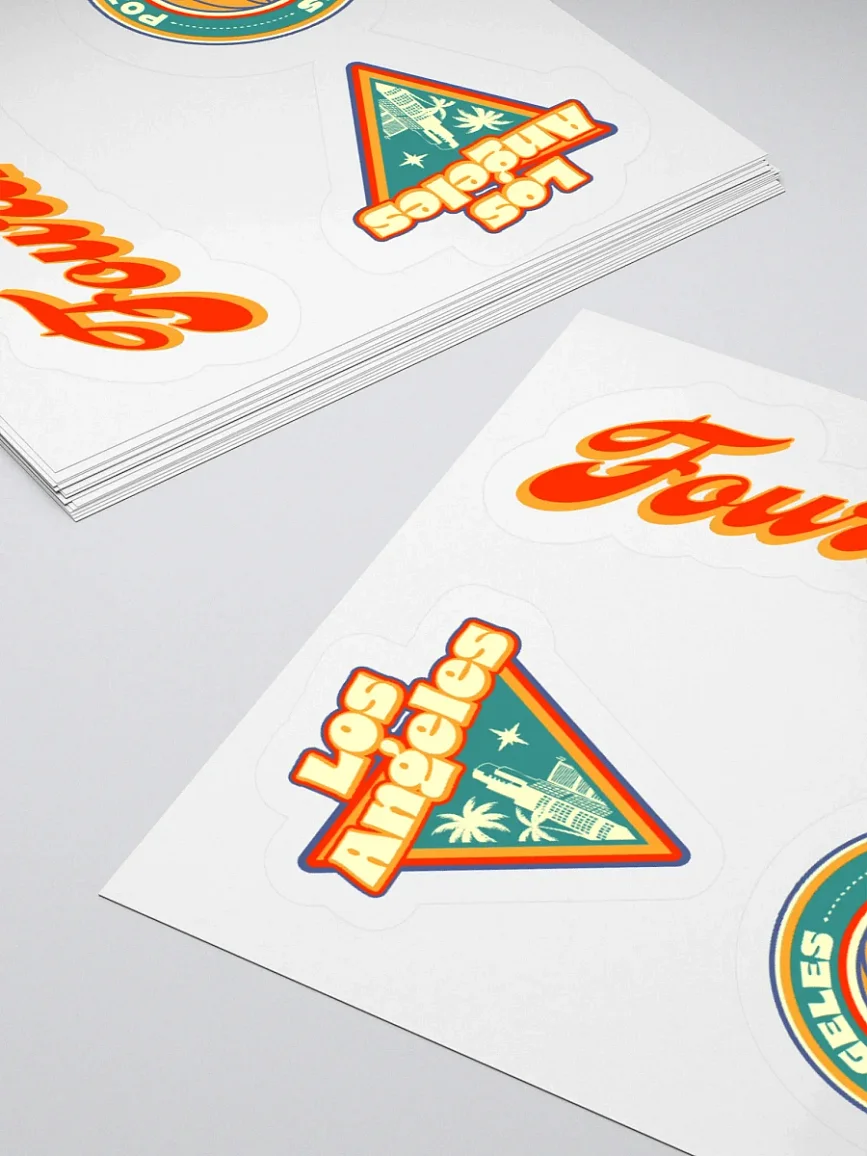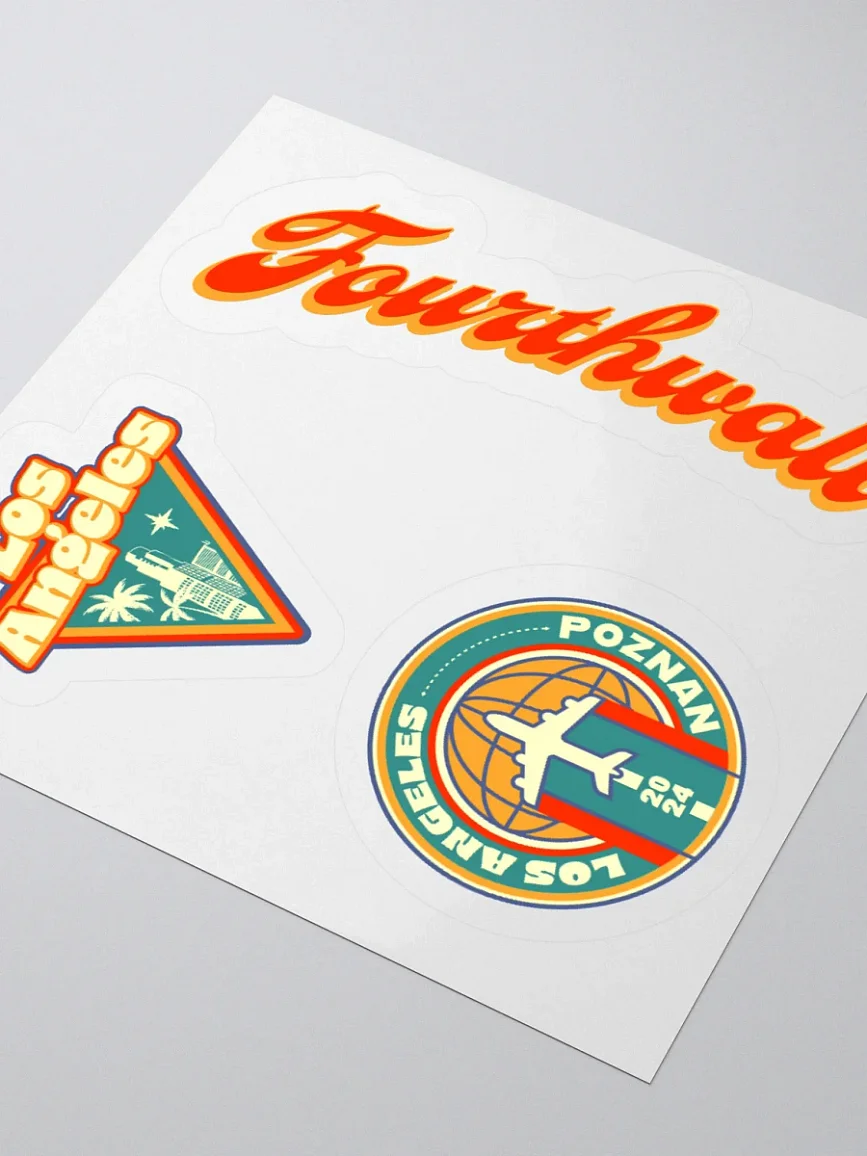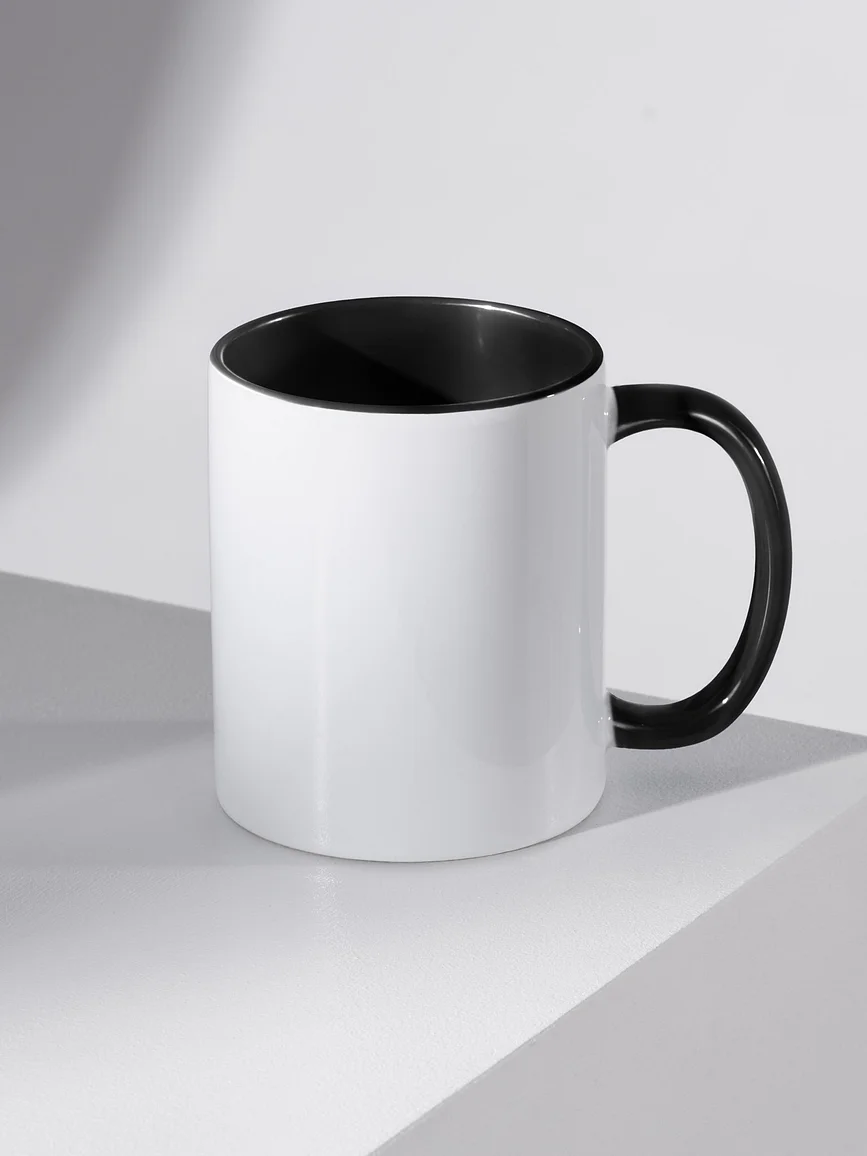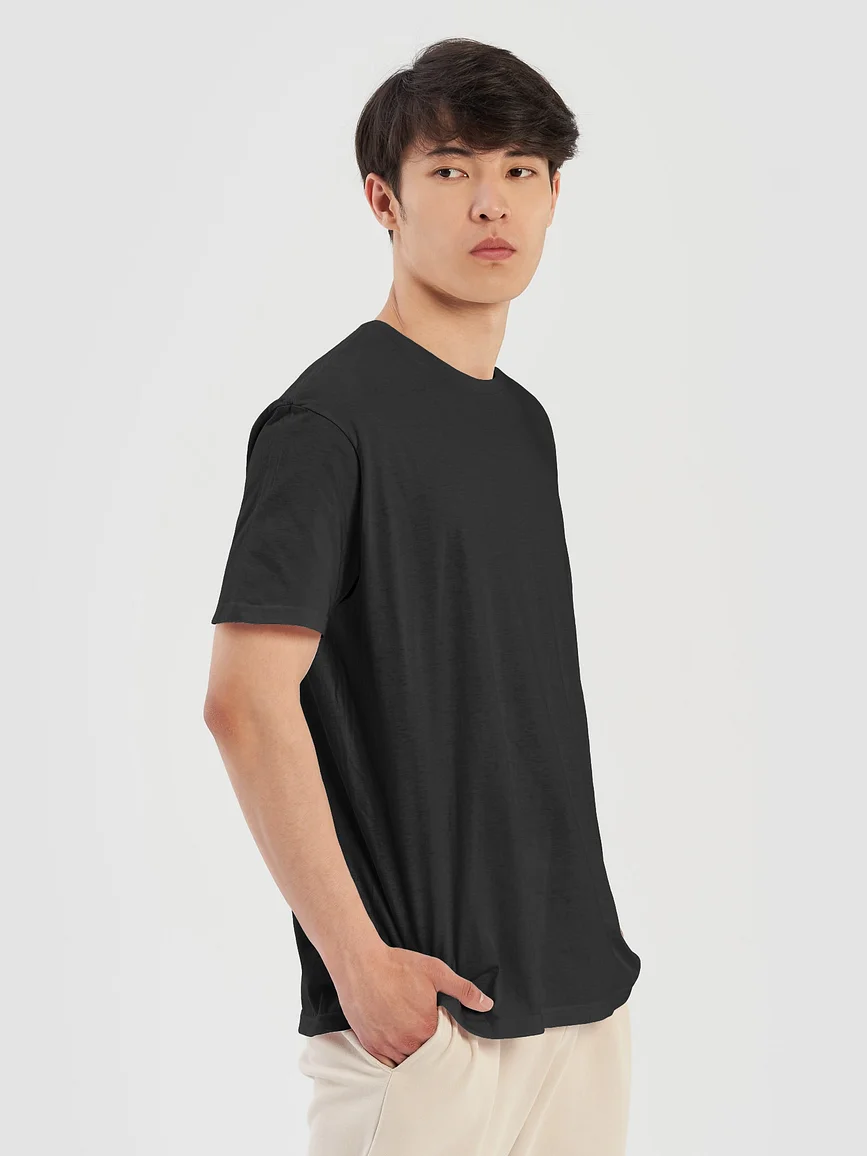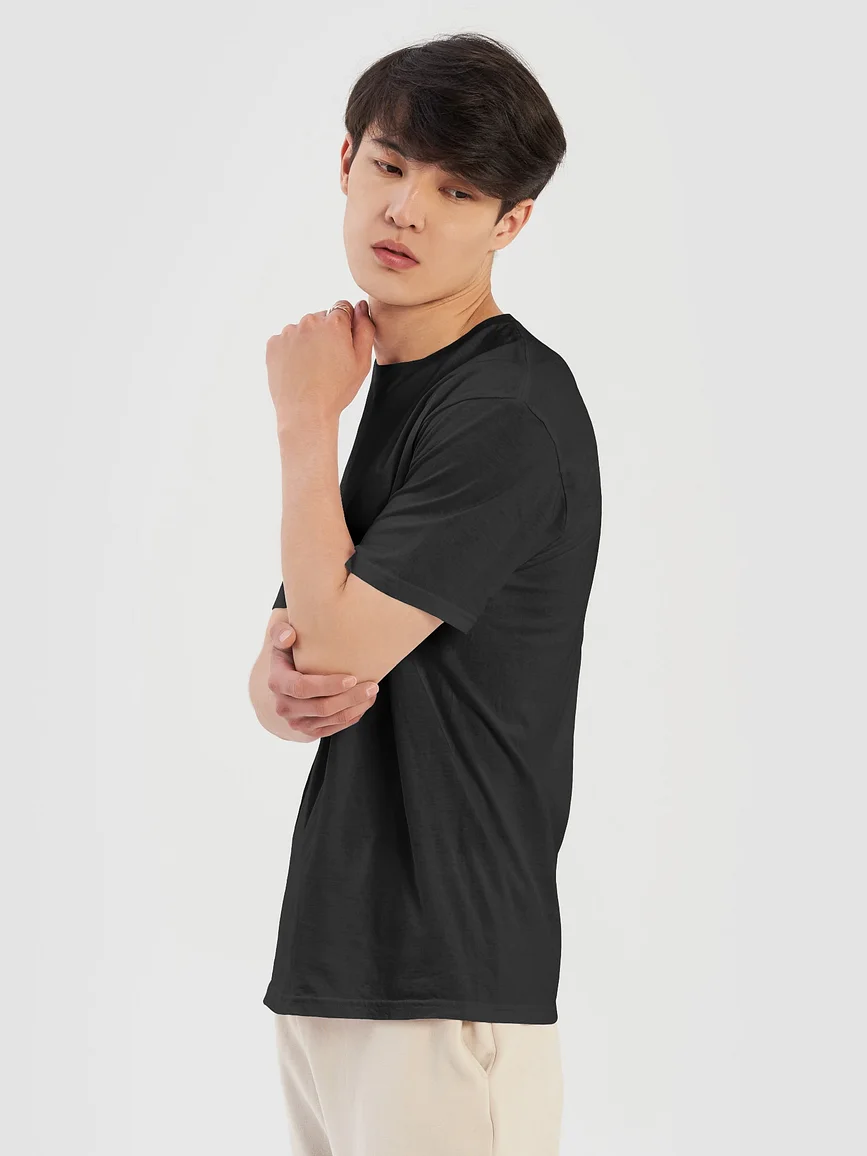The Top 10 Merch Companies for Influencers

If you're looking to monetize your growing fanbase, then it's time to consider upping your game by selling custom merchandise to your audience.
From YouTubers to TikTok stars, creators are turning their logos, slogans, and custom designs into apparel, hoodies, and other merchandise. Branded merchandise (aka merch) provides a tangible way for fans to support their favorite influencers, creating new revenue streams and deepening audience engagement.
We'll guide you through what branded merch is, its benefits, and the top 10 merchandise companies that influencers and creators should check out!
What is Branded Merch?

Branded merchandise refers to products that influencers create and sell featuring their logos, taglines, slogans, or custom designs that resonate with their audience. These products can range from apparel like T-shirts and hoodies to accessories like hats, mugs, and even digital items. The key to successful branded merch is ensuring it aligns with an influencer's identity, allowing fans to feel a part of their community.
Branded merch not only serves as an additional revenue stream but also helps creators reinforce their brand identity. Successful influencers like Emma Chamberlain and PewDiePie have launched thriving merch stores, offering custom products that fans eagerly purchase; other creators, like Marques Brownlee (MKBHD on YouTube) and Philip DeFranco also have merch stores through Fourthwall, where they sell branded merch that helps turn their casual followers and viewers into loyal customers.
Benefits of Branded Merch for Creators
Selling branded merch offers a multitude of benefits for creators and influencers, and the popularity of influencer merch is growing rapidly. According to reports, the global custom merchandise market is projected to grow, especially as influencers continue to tap into the demand for personalized apparel and accessories.
- Monetization: Merch provides influencers with an additional source of income. Platforms with print-on-demand services eliminate the need for inventory, allowing creators to earn good profit margins without a large upfront investment.
- Brand Building: Offering custom products like hoodies and shirts helps creators solidify their identity. Fans who wear or use branded merch act as ambassadors, spreading the influencer's brand to wider audiences.
- Audience Engagement: Selling merchandise strengthens the connection between creators and their fans. Fans enjoy the chance to purchase tangible products that represent their favorite influencers, helping to deepen emotional ties.
- Diversification: Branded merch enables influencers to diversify their revenue streams. Beyond sponsorships, affiliate marketing, or ads, selling custom products offers a unique way to earn money, particularly through platforms like YouTube and TikTok.
10 Things to Look for When Choosing a Merch Company
When choosing a merch company to partner with, there are several important factors to consider to ensure you provide high quality products and a seamless experience for your customers. Here’s a detailed breakdown of the key elements to evaluate:
1. Product Quality
The quality of the products you sell will directly impact your brand’s reputation, so it’s essential to choose a merch company that offers high quality materials and printing methods. Look for companies that offer samples or have reviews showcasing the durability, print clarity, and overall finish of their products. Poor quality merch can lead to dissatisfied customers, returns, and a negative impact on your brand image.
Considerations:
- Fabric and material quality for clothing or textile products.
- Durability of print or design (e.g., screen printing vs. sublimation).
- Detail of customization for items like accessories or tech products.
2. Range of Customization Options
Flexibility in product customization is crucial for creating unique custom merch that aligns with your brand. Some merch companies offer a wide range of options, including customizable apparel, accessories, tech gadgets, and more. You’ll want to assess whether the company offers different printing methods (such as embroidery, sublimation, screen printing, or direct-to-garment printing) to suit your design needs.
Considerations:
- Variety of product categories (apparel, home goods, accessories, etc.).
- Available color options for products and designs.
- Printing methods and their suitability for different designs.
3. Pricing and Profit Margins
Understanding the pricing model of any merchandise company is key to ensuring you can make a profit while offering competitive prices to your audience. Some companies operate on a print-on-demand basis, which may have higher per item costs but eliminates the need for upfront inventory. Others may offer bulk order discounts, which can increase your profit margins if you are willing to manage inventory.
Considerations:
- Base prices of products and how it impacts your retail pricing.
- Shipping costs and whether they are included or additional.
- Profit margin opportunities based on wholesale vs. print-on-demand models.
4. Shipping and Fulfillment
The shipping and fulfillment process is a critical part of your customer’s experience. Reliable and fast shipping ensures customer satisfaction, while slow or costly shipping can result in negative feedback and lost sales. Investigate how quickly orders are processed, what shipping options are available, and the company’s delivery times for both domestic and international orders.
Considerations:
- Shipping speed and estimated delivery times.
- Global shipping capabilities and associated costs.
- Order tracking options for you and your customers.
5. Return and Exchange Policies
Clear and fair return policies can save you and your customers a lot of frustration. Check whether the merch company offers flexible return and exchange policies, particularly for defective products, incorrect orders, or sizing issues. Be sure to understand who bears the responsibility for return shipping costs and how refunds or replacements are handled.
Considerations:
- Policies on defective products or print issues.
- Procedures for size exchanges or order modifications.
- Responsibility for return shipping costs and customer service support.
6. Customer Support
Effective customer support is essential when managing any merch business. If issues arise, such as problems with orders, shipping delays, or product defects, you need to have a responsive and reliable customer service team to assist you and your customers. Research the company’s customer service responsiveness by reading reviews or contacting them directly before committing.
Considerations:
- Availability of support channels (email, live chat, phone).
- Response time for resolving issues or answering inquiries.
- Reputation for customer service from online reviews or testimonials.
7. Integration with Your Store
If you’re selling merch through an existing ecommerce platform, it’s crucial to ensure that the merch company integrates seamlessly with your store. Many print-on-demand services offer integrations with popular platforms like Shopify, WooCommerce, Etsy, and Fourthwall, making it easy to sync product listings, inventory, and sales data.
Considerations:
- Compatibility with ecommerce platforms.
- Ease of use for creating and managing product listings.
- Automated order fulfillment to reduce manual work.
8. Sustainability and Ethical Practices
With increasing consumer awareness around sustainability, many customers are looking for eco-friendly and ethically sourced products. Look for merch companies that offer sustainable options, such as organic materials, eco-friendly printing methods, or carbon neutral shipping. Additionally, inquire about the company’s ethical practices, including how they source materials and their labor policies.
Considerations:
- Availability of sustainable products like organic cotton or recycled materials.
- Use of eco-friendly printing methods or packaging.
- Ethical sourcing and fair labor practices.
9. Reviews and Reputation
Research the reputation of the merch company by reading reviews from other creators and businesses who have worked with them. This will give you insight into the overall customer experience, the quality of the products, and the reliability of the company. Look for companies with consistently positive feedback and those that respond well to issues or complaints.
Considerations:
- Customer testimonials or case studies from other businesses.
- Online reviews on trust platforms (Trustpilot, Google Reviews).
- Reputation for reliability, especially regarding delivery and product quality.
10. Scalability
If your brand grows rapidly or you want to expand your product line, it’s important to choose a merch company that can scale with your business. Look for companies that offer a wide range of products and can handle increased order volumes without sacrificing quality or delivery speed.
Considerations:
- Ability to scale product offerings as your brand grows.
- Capacity to handle large order volumes or sudden increases in demand.
- Flexible contract terms or pricing models as your business evolves.
By carefully considering these factors, you can select a merch company that aligns with your brand’s values, ensures high-quality products, and provides a seamless customer experience, ultimately helping you build a successful merch business.
10 Best Merch Companies for Influencers and Creators
1. Fourthwall

Fourthwall is a highly user friendly platform designed for influencers of all sizes looking to launch customizable merch stores full of branded merchandise using a print-on-demand model. The platform offers a seamless experience with no coding required, allowing creators to easily design their own branded stores and sell merchandise directly to their followers.
Fourthwall provides a wide range of high quality products, including apparel, hoodies, accessories, and custom items, giving creators flexibility in creating unique, branded merchandise. With Fourthwall's product rendering technology, you can even develop photorealistic renders of each your designs and use them in all your promotional content.
One of Fourthwall's most standout features is its smooth integration with various shoppable platforms like TikTok Shop, Instagram Shopping, YouTube Merch Shelf, and Twitch Gifting, allowing creators to showcase their products directly within their content.
Fourthwall also offers additional features like personalized mobile apps, promo codes, worldwide shipping, and comprehensive analytics, making it a versatile option for influencers looking to launch a merch store, sell custom merchandise, grow their brand, and monetize their audience.
Pros:
- Easy, no-code setup for branded storefronts
- Seamless integration with TikTok, YouTube, and other social platforms
- Variety of customizable product options
- Ability to sell both digital and physical products
- Worldwide shipping with fast fulfillment
- Personal mobile apps and professional grade mockup generator
- Built in analytics and sales performance insights
- Full service customer support and eco-friendly product options
Cons:
- Limited product variety in certain categories (makeup, sports goods, consumables)
2. Printful

Printful is a highly popular print-on-demand platform that offers a wide selection of customizable products, including apparel, accessories, and home goods, making it a great option for influencers looking to sell branded merchandise.
One of the platform's biggest advantages is its seamless integration with major ecommerce platforms like Shopify, WooCommerce, and Etsy, allowing creators to automate the fulfillment process without upfront costs. Printful offers high quality printing options, including embroidery and white label packaging, enabling creators to maintain a professional and polished brand experience.
With an easy to use interface and built in mockup generator, Printful is an excellent choice for both beginners and experienced ecommerce sellers.
Pros:
- Wide range of products to customize
- Seamless integration with Shopify, WooCommerce, Etsy, and more
- High-quality printing and customization options, including embroidery
- No upfront costs and automated fulfillment
- Built-in mockup generator and beginner-friendly tools
Cons:
- Higher base prices compared to some competitors
- Longer shipping times for certain regions
- No phone support available for customer service
3. Printify

Printify is a standout merch platform for influencers due to its extensive range of over 900 customizable products and competitive pricing, making it a versatile option for creators looking to sell branded merchandise.
Printify offers a vast selection of products, including apparel, accessories, home goods, and even unique items like custom shoes and pet accessories, catering to diverse fan preferences. One of its key strengths is the ability to choose from a network of international print providers, allowing creators to select suppliers that best fit their quality and shipping needs.
Printify’s seamless integration with major ecommerce platforms like Shopify, Amazon, TikTok Shop, and Etsy gives creators access to large customer bases, while its easy-to-use interface and no upfront costs make it a great option for beginners.
Pros:
- Over 900 Printify products available for customization, including apparel, accessories, home goods, and more
- Integration with Shopify, Amazon, TikTok Shop, Etsy, and other marketplaces
- No upfront costs and user-friendly interface, great for beginners
- Ability to choose from multiple print providers based on quality and shipping needs
- Free to use with flexible product designs
Cons:
- Variable product quality depending on the chosen print provider
- Printify's shipping times can be slower, depending on the supplier
- Requires careful research to ensure consistent product quality
4. Redbubble

Known for its artist-driven designs, Redbubble is a global marketplace offering print-on-demand services with a focus on creative and unique products. Redbubble allows creators to feature their artwork on a wide variety of products, including apparel, home decor, phone cases, and accessories.
The platform handles the entire fulfillment process, from manufacturing to shipping, making it easy for influencers to focus on design and marketing. Redbubble’s global marketplace offers creators access to an international audience, though the platform's marketplace fees can result in lower profit margins.
Additionally, while Redbubble’s focus on creativity makes it appealing for artists, the platform's competitive nature and lack of integration with other ecommerce platforms can be challenging for influencers looking to scale.
Pros:
- Wide range of customizable products, including apparel, home decor, and accessories
- Artist-centric platform that emphasizes creative, unique designs
- Global reach with worldwide shipping and access to a large marketplace
- No upfront costs and easy to use design tools
- Free to sign up and sell
Cons:
- Lower profit margins due to marketplace fees
- Highly competitive marketplace, making it harder for new creators to stand out
- No integration with other ecommerce platforms or marketplaces
- Slow shipping times in certain regions
5. Spreadshop

Spreadshop is a global merch platform that simplifies the process of creating and selling custom merchandise online. It operates on a print-on-demand model, meaning creators don't need to worry about production, payments, order fulfillment, or shipping.
Spreadshop's platform offers easy-to-customize storefronts that can be tailored to match your brand identity, and creators can set their own retail prices, earning the difference between the base price and the sale price through monthly payouts. Spreadshop also provides tools for running promotional campaigns, offering discounts to attract and retain customers.
With integrations across social media platforms like Instagram, YouTube, and TikTok, creators can easily promote their products on Spreadshop and reach a global audience, making Spreadshop an excellent choice for those looking to monetize their brand through custom merch.
Pros:
- Easy setup with customizable storefronts
- Print-on-demand model with no upfront costs
- Integration with social media platforms (Instagram, YouTube, TikTok)
- Creators can set their own retail prices and run promotional campaigns
- Global shipping available
Cons:
- Limited reporting features
- Spreadshop doesn't offer a customer database feature
- Higher shipping costs for certain international locations
6. UberPrints

Established in 2005, Uber Prints specializes in T-shirts, hoodies, hats, aprons, and even dog T-shirts, allowing creators to offer diverse, branded items to their fans.
With a user-friendly online design tool, Uber Prints offers a wide variety of stunning templates, allowing creators to easily design unique products without needing extensive design skills. Uber Prints also offers multiple printing options, such as screen printing, digital printing, and embroidery, ensuring your designs are of the highest quality.
One of the standout features is the ability to get an instant free quote without any hassle, and their fast six business day turnaround ensures timely delivery. With a moneyback guarantee, influencers can confidently launch and sell their custom merch to fans.
Pros:
- Easy to use online design tool with beautiful templates
- Wide variety of customizable products, including dog t-shirts
- Multiple printing options (screen printing, digital printing, embroidery)
- Quick turnaround time (6 business days)
- Money-back guarantee for customer satisfaction
Cons:
- Limited product variety outside of apparel and accessories
- May lack advanced ecommerce integrations for larger-scale operations
- Shipping times may vary based on location
7. Teespring (Spring)

Teespring, also known as Spring, has become a go-to platform for influencers looking to create and sell custom designs for apparel and accessories without any upfront costs. Teespring/Spring operates on a print-on-demand model, making it simple for creators to design and sell products, with fees deducted per item sold.
The platform offers easy to use design tools and integrates seamlessly with YouTube, allowing creators to promote and sell their merchandise directly through their videos. This makes it especially useful for influencers looking to monetize their content effortlessly.
Although Teespring's product selection is more limited compared to some competitors, the platform is ideal for beginners due to its simplicity and lack of upfront investment.
Pros:
- No upfront costs or fees
- User friendly design tools
- Seamless integration with YouTube and Twitch for in video merchandise promotion
- Perfect for beginners and influencers
Cons:
- Limited product selection compared to competitors
- Fewer payment gateway options
- Limited customization for product variants
8. Zazzle

Zazzle is a versatile custom product platform offering an extensive range of merchandise, from apparel and accessories to home goods and unique categories like wedding items and party supplies.
With easy to use design tools, Zazzle is ideal for beginners looking to create custom products without needing advanced design skills. The platform allows creators to sell both physical print-on-demand products and digital downloads, making it flexible for different types of sellers.
However, Zazzle operates on a marketplace model where sellers are limited to selling only on Zazzle, and they have little control over pricing, as Zazzle sets standard commissions.
Pros:
- Large product catalog with over 1,000 items, including unique categories like sports gear and wedding supplies
- Beginner friendly design tools
- Ability to sell both digital downloads and physical products
Cons:
- Limited control over pricing, with Zazzle setting commission rates
- Sellers can only sell through Zazzle’s marketplace, limiting sales channels
- Lower profit margins due to marketplace fees
9. Bonfire

Bonfire is an excellent merch company for influencers, particularly those looking to run limited edition campaigns or fundraising initiatives.
With no upfront costs, Bonfire makes it easy for creators to design, sell, and manage custom products while focusing on building their community. The platform handles payment processing, order fulfillment, and customer service, allowing influencers to focus on their content.
Bonfire is particularly well suited for creators launching time sensitive or cause-driven merchandise, making it a popular choice for YouTubers and nonprofits alike. Their product selection includes high quality apparel and more.
Pros:
- Ideal for limited edition campaigns and fundraising
- No upfront costs and easy to use
- Handles payment processing, fulfillment, and customer service
- High quality customizable products like apparel, hats, mugs, and totes
Cons:
- Limited product range compared to other platforms
- Primarily focused on campaign based sales rather than continuous storefronts
10. Spreadshirt

Spreadshirt is great for creators as you can utilize it as both a print on demand website, and as a marketplace for products you design, both great ways to earn income.
With over 250 custom printable items available, including T-shirts, phone cases, hoodies, and more, you can easily get started on Spreadshirt's platform by signing up for a seller account, choosing your products, and designing.
You can sell your new custom merch in Spreadshirt's own marketplace, or you can publish your Spreadshirt products directly on your Shopify store. This dual functionality provides creators with exposure, tools, and support to showcase and monetize their products.
Pros:
- Good quality printing
- Easy to use interface
- Plenty of printable items to choose from
- Integration with YouTube Merch shelf
Cons:
- Shipping costs can be high
- Customization options for Spreadshirt storefronts are limited
FAQ
Does Selling Merch Make Money?
Yes, selling branded merch can be a highly profitable venture for influencers, particularly when using print-on-demand platforms that eliminate the need for large upfront investments.
These platforms handle production, shipping, and fulfillment, allowing creators to focus on design and marketing. With the ability to set their own prices, influencers can enjoy healthy profit margins, especially if they have a loyal and engaged fanbase.
Moreover, merch sales not only generate income but also strengthen brand identity and deepen the connection with followers, turning fans into brand ambassadors.
Who Has the Highest Selling Merch?
Many top YouTubers, such as Emma Chamberlain, PewDiePie, and MrBeast, have seen incredible success with their merchandise lines, largely due to their massive and highly engaged audiences.
These creators have built strong personal brands, and their fans are eager to support them by purchasing unique, branded merch that reflects their content and personality.
By leveraging their influence, consistent promotion, and strategic use of limited edition drops, these YouTubers have been able to generate substantial revenue from their merch sales, solidifying their place among the highest sellers in the creator economy.
What's the Best Company to Make Custom Merch?
The best merch company for creators depends on individual needs and priorities.
For those who prioritize high quality products and comprehensive features like shoppable integration, Fourthwall is an excellent option, offering easy connectivity with platforms like TikTok, YouTube, and Twitch, alongside customizable storefronts.
Each platform has its strengths, so choosing the right one depends on factors like product selection, ease of use, and integration with your existing audience
What Brands Are Doing Influencer Marketing?
Many major brands across various industries are tapping into influencer marketing to reach new audiences and drive engagement. Apparel giants like Nike and Adidas frequently collaborate with influencers and athletes to promote their products in a more authentic, relatable way.
Tech companies such as Apple and Samsung also leverage influencer partnerships to showcase their latest gadgets through hands-on reviews and creative content, making their products more appealing to tech-savvy audiences.
Even beauty brands like Glossier and Fenty Beauty also use influencer marketing extensively, partnering with creators to demonstrate product efficacy and trends to their loyal followers.
Start Selling Your Branded Merch with Fourthwall!

Fourthwall stands out as one of the best platforms for influencers who want a comprehensive solution for creating, managing, and selling branded merch. It offers customizable storefronts, integrated marketing tools, and seamless connections with popular social media platforms like TikTok (TikTok Shop) and YouTube (YouTube Shopping.)
To get started with Fourthwall:
- Sign up - Register for an account on Fourthwall’s website.
- Create your designs - Use Fourthwall’s design tools or upload your own custom designs.
- Set up your store - Customize your storefront with your branding and product offerings.
- Promote your merch - Link your Fourthwall store to your TikTok and YouTube accounts.
- Start selling - Begin accepting orders and let Fourthwall handle the fulfillment.
Fourthwall’s simple setup process and powerful social media integration make it a great choice for influencers looking to launch a merch store and grow their personal brand - get started on Fourthwall today!








